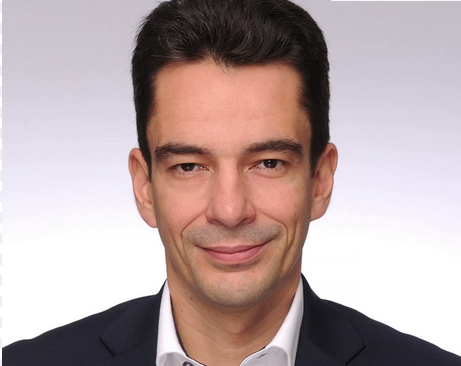The priority is to guarantee the protection of personal information and to protect against the risks of counterfeiting. To achieve this, Linxens relies on cutting-edge innovations, which also offer real added value to those who manufacture these documents. (V. Gourmelen)
What do current technologies bring to the production of identity documents?
The production chain of an identity document (passport, identity card, health card, driver's license, residence permit) is quite complex because of the challenges it must meet. Governments therefore work with manufacturers to produce these documents, who in turn rely on the technological expertise of component manufacturers, generally certified by the industry standard, EAL 6 (Evaluation Assurance Level), as is the case with Linxens.
In this context, our core business is to package the electronic intelligence of these ID documents into modules, to manufacture the antenna that will ensure contactless communication, and to integrate this whole assembly into a layer that will be found at the heart of the ID document and that we call the inlay. Linxens therefore plays a central role, as we guarantee the protection of this embedded electronics, ensuring that the life of the document is long enough to avoid having to replace it too regularly.
Which solutions allow to reinforce the protection of the identity document and thus of the personal data?
The inlay we manufacture can take up to 40% of the thickness of the final document (in the case of a contactless document). It is important to know that the thickness of an ID card is regulated by an international standard and that therefore the space to include security elements to prevent fraud and counterfeiting is limited. We therefore offer our customers security elements that we integrate into the very heart of the inlay to make the best use of the space that the inlay takes up in the heart of the document. In this way, we increase the added value of our inlays, which is particularly interesting for identity document manufacturers with whom we work closely.
The second reason for incorporating security features into the core of the inlay is that counterfeiting techniques are becoming more and more advanced every day. Interpol, which records the different types of attacks on identity documents around the world, has announced the interception of a document incorporating a fake electronic chip with part of the cryptographic security normally used1. There is therefore a real need today to be able to verify that the electronic part of the document and therefore the inlay is not a fake.
How does innovation play a crucial role for ID document manufacturers?
Among the recent innovations, transparent areas are in great demand, especially when combined with additional safety features. Linxens has therefore developed inlays that include transparent windows. Not only does the incorporation of these transparent areas into the core of the inlay secure the document at its core, but it also simplifies the card manufacturer's manufacturing process.
As technologies evolve rapidly, the elements that guarantee the security of ID documents must be at the forefront of innovation, in order to protect against counterfeiting and fraud, which are also increasingly advanced. This is why, at Linxens, we do our utmost to stay ahead of the game, alongside our partners and the ID document manufacturers who are our customers and who have the very important task of guaranteeing the security of documents against the attacks of today and tomorrow.
1 Commented Ilana de Wild, Director Organised and Emerging Crime, Interpol, during a presentation at Intergraf 2022.
